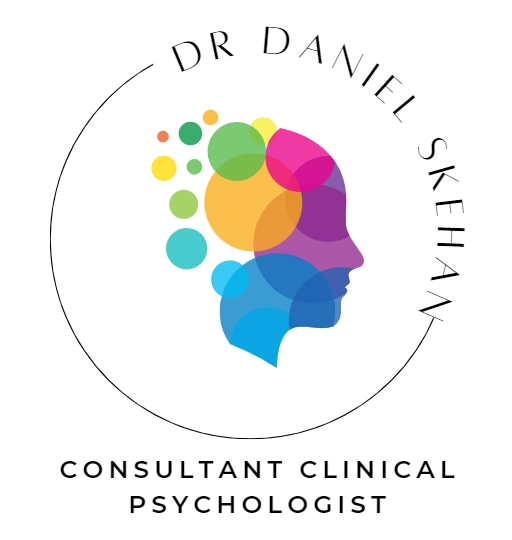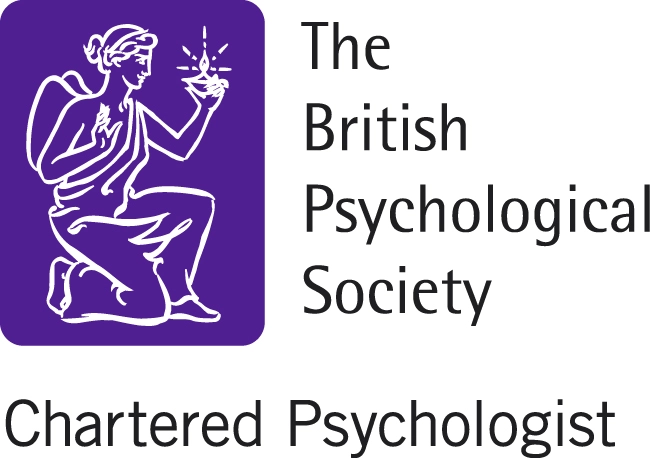Find out more about self-critism and learning to be compassionate to yourself and recognise and accept compassion from others.
Self-criticism and Rumination: Information Hand-out
Download handout or read below (.pdf - opens in new window)
What is self-criticism?
Self-criticism is a negative judgement of yourself or your actions. It can vary in nature but we are most interested in a particular form: general/global judgements, feelings of shame, anger, contempt and the desire to punish. It might best be described as ‘self-attacking’.
What is rumination?
Rumination is a negative thought about the past that stays in your head – you just think about the same thing over and over again. You think about things you regret or the wrongs people have done to you (e.g. ‘Why did I…?’ and ‘How could they do that….’).
What is the impact?
Focussing on past mistakes, regrets, past negative experiences or aspects of ourselves we do not like, results in low mood, reduced motivation, avoidance, anxiety, distress etc. Bulling or attacking yourself can have the same impact as if someone else were bullying you!
Why do we do it?
So if it is so distressing why do we ruminate and why do we attack ourselves? You may feel like it is outside of your control. However, it is important to realise that this type of behaviour has a function. Consider the following:
For a minute close your eyes or look down and think what your fear would be if, from this moment on, you were never self-critical again – somehow we could remove this from your mind.
- What would be the WORST that could happen?
The answers you might give to this question reveal the reasons we ruminate and the reasons we criticise, attack or punish ourselves or simply focus on negative events. These include:
- Self-improvement
- Learning from mistakes
- Motivating ourselves
- Achieving our goals
- Be a good person (live according to our values)
The list could go on, but ultimately, these reasons lead to the same outcome – to be happy. If we become the person we want to be, achieve the goals we want and live life adhering to principles we value, we hope to be happy.
Another dilemma:
So we criticise ourselves to feel happy but this has the side-effect of causing us to feel unhappy?? The solution to this issue is to focus on the goal of happiness (via self-improvement, achieving goals, living by our values) while minimising the side-effects of the strategy used. Here is the key question: how do we most effectively learn from our mistakes and improve ourselves? What is the best form of self-criticism and the best way to reflect on or think about the past?
Alternatives to self-criticism and rumination:
- Compassionate self-correction
- Self-support and self-soothing
- Reflection time: using active problem-solving
- Disengaging from rumination using detached mindfulness
Compassionate self-correction
If you look at the information sheet titled ‘Compassionate self-correction vs. shame-based self-attacking’, you can see how self-criticism can take different forms. We argue that compassionate self-correction connects to the function of self-criticism (happiness!) most effectively. Compassion can be defined as follows:
‘A deep awareness of the suffering of another coupled with the wish to relieve it”
It also includes the following attributes: Sensitivity, Sympathy, Empathy, Caring, Distress Tolerance, and Non-Judgement. We are now talking about compassion for yourself and how this can be useful for self-improvement, achieving goals, finding happiness and self-care.
Self-support and self-soothing
Compassion is therefore not just about learning from mistakes, but supporting yourself, getting the best from yourself and being on your own side. It is about learning to support yourself through the difficult times and, not just surviving, but flourishing. It is about self-actualisation, living by your values and focussing on hope for the future. The sheet titled ‘How can someone be compassionate towards you?’, gets you to think about how you could show compassion to someone else. It thinks about the characteristics of compassion and the nature of it. It can therefore be useful to think through the following questions when considering how to be supportive of yourself:
- How would you advise a friend who is going through this same difficulty as you?
- How would you comfort a friend who is suffering in the same way as you?
- How would you act towards a friend who has gone through similar experience?
- How would you feel towards a friend who has gone through a similar experience?
- Can you be that kind of friend to yourself and show that kindness?
Reflection time: using active problem-solving
In order to reduce rumination it can be useful to learn to structure it and be able to disengage from it in exactly the same way as worry (covered in the sessions on anxiety). This involves
Alternative to unstructured worry (a step by step guide)
How to reflect on negative past events:
Step 1:
Begin to notice when you are ruminating/repeatedly focussing on negative thoughts. It will be such a habit that you may struggle to notice that you are doing it. The first step is to reflect on the process. Be aware of the difference between the trigger (the initial thought) and the process (the continued effort).
Step 2:
Begin to delay your rumination / depressive thinking. You can maintain all of the positive parts of this kind of reflection by doing it at a specific point in the day (e.g. 6pm). During the rest of the day say to yourself ‘I will think about this properly later’.
Step 3:
Dismiss thoughts associated with the rumination/depressive thinking. You do not need to reflect on this now. Triggers my still pop into your mind, you do not need to respond to each one (perhaps engage in detached mindfulness)
Step 4:
During ‘reflection time’, you can focus on your rumination / negative thoughts for a specific amount of time. You may then be able to actively problem-solve and explore lessons from past mistakes. This may not be a pleasant moment in your day, however, it is only for a brief period and will be more likely to be useful.
Disengaging from rumination using detached mindfulness
Detached mindfulness is a particular view of and response to thoughts. The main idea is that it is important to reflect on thoughts as simply and only ‘thoughts’ – harmless events in the mind. Of course, the content of the thoughts can be meaningful and important, but the thoughts themselves do not mean anything, they do not change anything. Thoughts only become important when we focus on them and use them to make decisions – but this is an intentional, effortful activity. Thoughts themselves are harmless and meaningless, unless we give them meaning or importance. We have thousands of thoughts every day, most of which we dismiss. We could imagine winning the lottery, we could imagine losing our wallet or phone – it would not make these things more likely to happen. We could imagine absurd situations, like a balloon Ostrich made of gold floating in the sky – thoughts themselves do not matter.
Detached mindfulness asks us to recognise that thoughts do not always need to be engaged with and that we can have them and stay aware of this face. Just as if we stayed aware of a television show being made up of a script and actors, we can disengage from our thoughts. This approach helps people let go of their depressive thoughts / rumination, if they are struggling to do so. You may find some useful metaphors and exercises that illustrate this approach in the ‘anxiety’ hand-outs.
|
Compassionate self-correction
|
Shame-based self-attacking |
|
The desire to improve Growth and enhancement Forward-looking Given with encouragement, support and kindness Building on positives (e.g. seeing what one did well and then considering learning points) Focuses on attributes and specific qualities of self Focus on hope for success For mistakes · Guilt, engage · Sorrow, remorse · Reparation E.g. An encouraging supportive teacher with child who is struggling. |
The desire to condemn and punish Punishing past errors Backward-looking Given with anger, frustration contempt, disappointment Focuses on deficits and fear of exposure Focuses on self as a global sense of self Focus on high fear of failure For mistakes · Shame, avoidance, fear · Heart sink, lowered mood · Aggression E.g. A critical teacher with a child who is struggling. |


